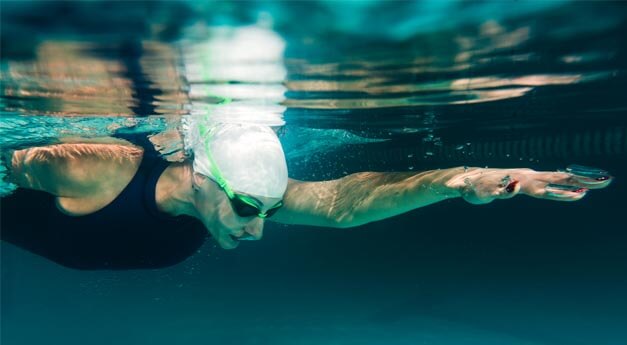Understanding the Cardiovascular Impact of Sudden Cold Water Immersion
When the human body is abruptly Entering Cold Water Suddenly Can Cause Abnormal Heart Rhythms, especially below 15°C (59°F), it undergoes an intense physiological response. This sudden exposure can shock the cardiovascular system, triggering abnormal heart rhythms, medically known as cardiac arrhythmias. These arrhythmias can range from minor irregularities to life-threatening conditions such as ventricular fibrillation or sudden cardiac arrest.
The human body relies on homeostasis, or balance, to maintain optimal function. Sudden thermal shock from cold water breaks that balance instantly. The result? A spike in heart rate, blood pressure, and peripheral vasoconstriction. For individuals with underlying heart conditions—or even undiagnosed risks—this reaction can be deadly.
Cold Shock Response and Its Cardiovascular Consequences
The cold shock response is the body’s immediate reaction to sudden cold exposure. It includes:
-
Gasp reflex
-
Hyperventilation
-
Tachycardia (rapid heart rate)
-
Increased blood pressure
This response places enormous stress on the heart. The simultaneous rush of adrenaline and narrowing of blood vessels makes it harder for the heart to pump efficiently. For some, especially those over 50 or with existing cardiovascular issues, the increased load can result in atrial fibrillation, ventricular tachycardia, or cardiac arrest within seconds.
Why Abnormal Heart Rhythms Occur
The mechanism behind cold-induced arrhythmias lies in sympathetic nervous system activation. When cold water contacts the skin, receptors send signals to the brain, triggering a release of catecholamines like adrenaline and noradrenaline. This surge leads to:
-
Erratic electrical activity in the heart
-
Impaired coordination between heart chambers
-
Increased oxygen demand
These factors combined can destabilize even a healthy heart’s rhythm. For those unaware they have ischemic heart disease or conduction disorders, the consequences can be fatal.
Immersion Pulmonary Edema and Cardiac Risk
Another underrecognized condition related to cold water immersion is immersion pulmonary edema (IPE). In this situation, the combination of:
-
Cold water immersion
-
Physical exertion
-
Tight wetsuits or swimsuits
-
Elevated blood pressure
…forces fluid into the lungs. This sudden fluid buildup reduces oxygen exchange and puts additional strain on the heart, increasing the risk of cardiac arrhythmias and even drowning. IPE can occur within minutes and presents symptoms such as:
-
Shortness of breath
-
Coughing up blood-tinged sputum
-
Chest tightness
Who Is Most at Risk?
While anyone can be affected, the risk is significantly higher among:
-
Older adults (age 50+)
-
Individuals with hypertension or coronary artery disease
-
People with a family history of sudden cardiac death
-
Athletes or triathletes who train in open water
-
Individuals on beta-blockers or heart medications
Even trained swimmers are not immune. In fact, multiple studies and autopsy reports from triathlon events have linked sudden deaths in open water to cardiac arrhythmias triggered by cold water immersion.
The Role of the Mammalian Diving Reflex
Paradoxically, cold water immersion can also trigger the mammalian diving reflex, especially when the face is submerged. This reflex causes:
-
Bradycardia (slowing of the heart rate)
-
Peripheral vasoconstriction
-
Shunting of blood to vital organs
However, if the cold shock response and diving reflex occur simultaneously, the heart receives mixed autonomic signals—some telling it to speed up, others to slow down. This autonomic conflict is a major contributor to lethal arrhythmias during sudden cold water immersion.
Precautionary Measures to Avoid Sudden Cardiac Events
To prevent abnormal heart rhythms caused by sudden exposure to cold water, experts recommend:
-
Acclimatization: Gradually expose your body to cold water over days or weeks.
-
Wearing thermal protection: Use wetsuits to buffer the thermal shock.
-
Entering water slowly: Avoid jumping or diving headfirst into cold water.
-
Avoiding cold water when unwell: Illness increases susceptibility.
-
Not swimming alone: Always swim with a buddy, especially in open water.
-
Getting a heart screening: Particularly for athletes and individuals over 40.
Recognizing Early Warning Signs of Arrhythmias
Understanding the symptoms of developing heart rhythm problems can be life-saving. Common early warning signs include:
-
Palpitations or fluttering in the chest
-
Unexplained fatigue
-
Dizziness or lightheadedness
-
Shortness of breath
-
Sudden weakness or fainting
If you experience these symptoms during or after cold water exposure, seek immediate medical attention. Time is critical when dealing with cardiovascular irregularities.
Scientific Studies Supporting the Link
Several studies have confirmed the link between cold water immersion and abnormal heart rhythms:
-
A 2016 British Journal of Sports Medicine article highlighted the surge in triathlon deaths linked to sudden immersion in cold open water, identifying cardiac arrhythmias as a key cause.
-
Research in the European Journal of Applied Physiology found that even healthy young males developed arrhythmic patterns during abrupt cold water immersion.
-
A 2021 study from the American Heart Association emphasized how cold exposure causes a spike in sympathetic output, predisposing individuals to lethal rhythm changes.
Conclusion: Safety Before Speed
While the thrill of diving into a cold lake or sea may seem invigorating, the hidden danger to the heart is real. Abnormal heart rhythms caused by sudden cold water exposure are not rare and not harmless—they can kill even seemingly healthy individuals in minutes. Recognizing the risks, understanding the mechanisms involved, and taking proper precautions are essential steps for anyone who spends time in cold water environments.
Protect your heart. Respect the cold. Train smart.





